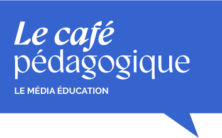Discover this surprising article from the New York Times : « And if It’s a Boy, Will It Be Lleh? », By Jennifer Lee, May 19, 2006. The article is short and easy to understand, the lesson plan » Exploring The History of Names Through Creative Writing » can be useful.
– article: http://www.nytimes.com/learning/teachers/featured_articles/20060519friday.html
– lesson plan: http://www.nytimes.com/learning/teachers/lessons/20060519friday.html
Suggestion to start your lesson:
– you can use the title « And if It’s a Boy, Will It Be Lleh? » or an extract from the article : » In 1999, there were only eight newborn American girls named Nevaeh. Last year, it was the 70th-most-popular name for baby girls, ahead of Sara, Vanessa and Amanda. » to see if the students will notice that those two names are just Hell and Heaven spelt backwards.
– or you can start with a brainstorming about the most popular names and why parents choose them.
Then the students will read the text and answer questions like those suggested in the lesson, then go on to the meaning of their own name, or to a discussion about how much freedom parents should have to choose the name of their child.
to go on with this topic, have a look at this British article from Junior Magazine ( « the world’s most famous parenting magazine ») which gives useful advices to future parents about how to choose a name and what mistakes to avoid.
http://www.juniormagazine.co.uk/module-pagesetter-viewpub-tid-5-pid-91.html
and you can then go on with this article on a blog (with several comments) comparing the law about giving names in different countries.
http://thebabynamewizard.ivillage.com/parenting/archives/2004/11/my_baby_my_name_choice_or_not.html
Nos derniers articles

Découvrez les conseils de Béatrice Flammang, notre spécialiste culture, pour vos vacances d’automne. Une exposition consacrée à la reine des fleurs L’abbaye de Saint-Riquier – centre culturel départemental de la
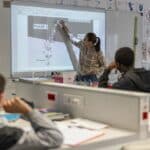
Retrouvez sur cette page les 10 ressources pédagogiques relayées cette semaine dans le Café pédagogique. LCA : Les mythes grecs, des mensonges pleins de vérités Le Grand livre des mythes
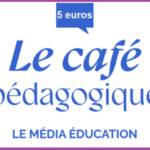
Le Café pédagogique a besoin de votre soutien ! En soutenant le Café pédagogique, vous accompagnez un média indépendant et en accès libre. Depuis 2001, Le Café pédagogique vous informe
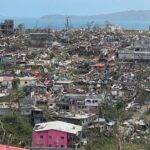
« Le territoire est dévasté » dit Abal-Kassim Cheik Ahamed, président de l’université de Dembéni. Comme lui, le directeur d’une école Guillaume Dupré Wekesa témoigne de la situation catastrophique de
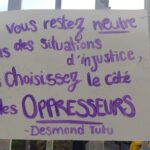
« Des cris de singe en cours », « des remarques sur la peau noire », « le racisme monte doucement, les élèves en parlent depuis ce qui s’est passé
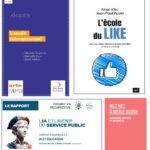
Après un premier trimestre bien rempli, le temps de vacances qui arrive est d’abord un temps partagé avec les proches et « en présence ». Alors que l’école sera mise entre parenthèses,
Cliquez ici pour annuler la réponse.
You must be logged in to post a comment.

